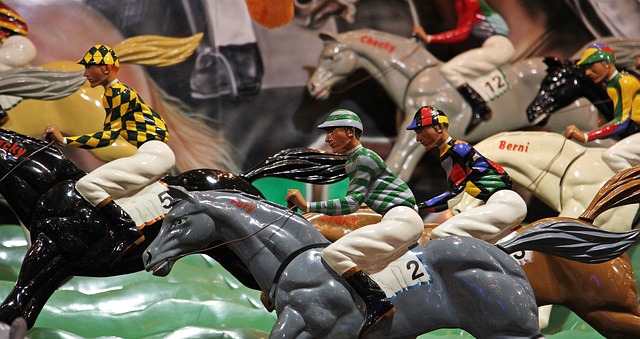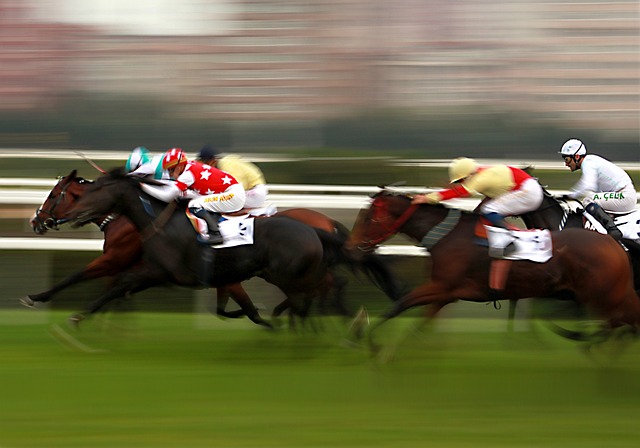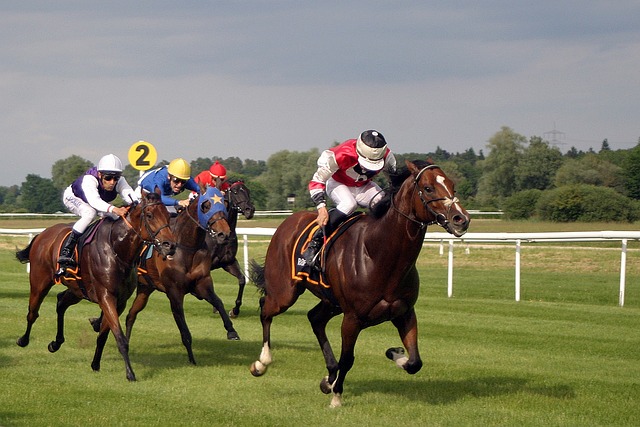The History of Betting on Horse Racing
April 5, 2024

Horse racing betting seems to be a classic in the world of sports betting. The history of betting on horse racing is great and amazing. What a journey this competition has taken from ancient times to online betting on 22Bet. In this article, we will find out!
Ancient Beginnings
Horse racing, one of the world’s oldest sports, has been linked with betting from its very inception. Records indicate that horse racing occurred in ancient Greece, Babylon, Syria, and Egypt. It was also a part of the ancient Greek Olympics by 648 BC. In these early days, spectators would place informal bets among themselves as they cheered on charioteers.
The Sport of Kings
In Great Britain, horse racing blossomed into a professional sport during the reign of Queen Anne in the early 18th century. Horse owners would put up a purse, and spectators would bet on the outcome. This era saw the establishment of formal racecourses, and with them, organized betting.
The Birth of Modern Betting Systems

The Bookmaker System
The mid-18th century marked the emergence of the bookmaker. Initially, these individuals were just spectators who would calculate odds, take bets, and pay out winnings from their pockets. Over time, this role became more formalized, setting the foundations for the modern betting industry.
Pari-Mutuel Betting
Introduced in France in the 1860s by Parisian businessman Pierre Oller, the pari-mutuel betting system was revolutionary. Unlike bookmaking, which involves odds set by an individual bookie, pari-mutuel betting pools all bets on a race and divides the winnings among the winners, after deducting management fees. This system ensured fairness and transparency, and it quickly spread to other countries.
Growth and Global Expansion
Racing in America
Horse racing was brought to America by the British in the 17th century and quickly became a popular pastime. The American Stud Book was started in 1868, promoting more organized horse racing. The iconic Kentucky Derby began in 1875, following the establishment of the Saratoga Race Course and the Belmont Stakes, turning horse racing and betting into a significant part of American culture.
The Impact of Technology
The 20th century introduced several technological advancements that changed horse betting significantly. The introduction of the totalizator, an automated pari-mutuel betting machine, in the early 1900s allowed more efficient management of bet pooling and odds calculations. Later, televised races in the 1950s expanded the sport’s reach, bringing live racing action to public and private venues far from the racetracks.
Regulation and Integrity

Establishing Control
As betting on horse racing became more popular, the need for regulation became evident. The U.K. established the Horserace Betting Levy Board and the Betting, Gaming and Lotteries Act in the 1960s to oversee betting activities. Similarly, various regulatory bodies were established in the United States to ensure the integrity of betting in horse racing.
Online Betting Revolution
The late 20th and early 21st centuries saw the advent of online betting. Online platforms have made betting on horse racing accessible to a broader audience worldwide, offering real-time participation in global events without the need to be physically present at the racetracks.
Contemporary Horse Racing Betting
Today’s Betting Landscape
Modern horse racing betting is a dynamic mix of tradition and technology. Bettors can choose from a variety of betting types, from simple win, place, and show bets to more complex exotic bets. Online betting platforms and mobile apps offer convenient betting options, comprehensive data analytics, and live streaming services.
The Future of Betting in Horse Racing
As the digital landscape evolves, so too does the world of horse racing betting. Innovations like virtual reality experiences and blockchain for secure, transparent transactions are on the horizon. Despite these changes, the thrill of betting on horse racing continues to draw new enthusiasts, preserving its legacy as a cherished global sport.